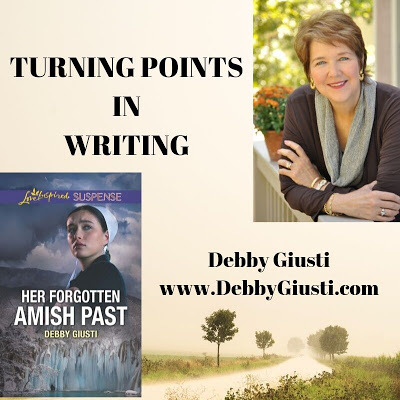Turning Points in Writing

By Debby Giusti
I teach a writing class at my church and was unsure of what my topic would be this month. We’ve all heard that the best way to learn is to teach, and a little interior voice kept telling me I needed to focus on turning points for both my class and the story I was brainstorming. Thankfully, I listened to that little voice because a review of turning points was a win-win. The class was well received, the writers learned something new, and I used the turning points model to plot my next story.
I’m sure most of us can identify important events in our lives that have affected us in one way or another, either for good or for ill. Marriage, divorce, birth of a child, death of a parent, college graduation, a new job, loss of a job, illness or an accident that led to debilitation, scandal, betrayal, and the list goes on and on. The events are turning points that caused us to change emotionally, physically or spiritually. After undergoing a significant turning point, we may see the world and ourselves in a different or new way so that we’re not the same person we were prior to the event.

The same holds true for our characters. They change and grow because of the unexpected events we include in our stories. As writers, we use significant turning points to enhance the emotion, ratchet up the conflict, place our hero and heroine in jeopardy and cause them to change.
Just as in our own lives, our hero and heroine become new people by the end of the story. They see the world in a different way. They’ve learned a valuable lesson about themselves or about life in general. They’re able to forgive those who hurt them in the past and can also forgive themselves for the mistakes they’ve made. Most important, they are able to love and be loved, to open their hearts to the Lord and to embrace life to the full.
Published on September 17, 2019 21:00
No comments have been added yet.



